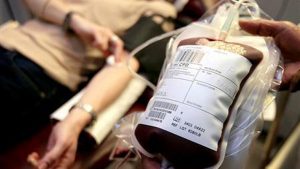A 590-million rand rates and taxes bill owed to the Northern Cape’s Sol Plaatje Municipality in Kimberley by the provincial Public Works department has become a source of dispute between the two parties.
A large portion of the bill is attributed to the new mental health hospital which has accrued a debt of about R150 million.
Big businesses and government departments owe the most. The poor also are feeling the pinch as the municipality tries to recover what is owed to them.
The long queue is a norm now at the Sol Plaatje Municipality. Residents are trying to make payment arrangements to re-connect utilities. The municipality has in recent weeks cut electricity to recover debt.
“Why are they blocking our electricity, the rates that we are paying is for the services but why are they blocking the electricity,” says Kimberley resident, Nomsa Lephoi.
“I just paid R500 from my children’s grant, what are they going to eat now? I think it’s unfair,” added another resident, Mpolokeng Mtungwa.
However, residential debt is a mere drop in the ocean. The biggest defaulters are government and big business. The Provincial Department of Public Works is responsible for paying rates and taxes for 1200 buildings.It owes the Municipality about R 590 million.
“We owing the municipality and we are paying what we have. Year in year out our expenditure is 100 percent on rates and taxes but we have to stretch it through all the 26 municipalities that we are paying and I must be honest with you that the bulk of the budget goes to sol Plaatje at the expense of smaller municipalities,” says Chief Director and Property Management from Public Works, Onkemetse Gill.
The Municipality has been criticised for its high rates and taxes.
“The reality is that without the income from these services it will be difficult to run the municipality. We need the money in order for us to continue,” says Sol Plaatje Municipality Spokesperson, Sello Matsie.
Residents believe they should not be penalised due to the municipality’s poor collection methods.






